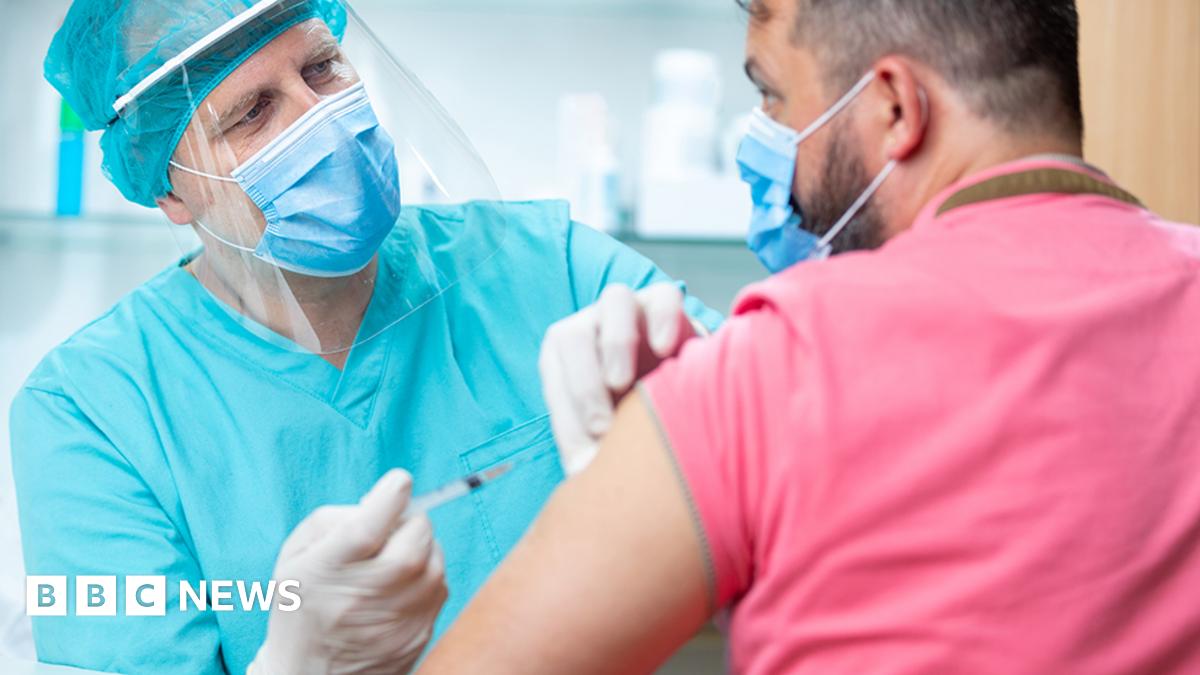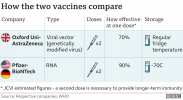Just to be clear in regard to this target of mid February to get the top four categories vaccinated, is that with a single dose of what’s supposed to be a two dose vaccine? Whilst I appreciate that one dose offers some level of immunity, will it be enough to significantly reduce the number of hospitalisations and deaths, bearing in mind the profile of the most vulnerable?
Another genuine question as I’ve no idea, does having millions of people walking around in effect partially vaccinated, increase the risk of the virus mutating into a vaccine resistant strain?
If by giving one dose we get a 50:50 chance of getting the virus and we've given it to the people who make up 2/3rds of admissions to hospital then on that alone we'd see a fall of 1/3 of hospital admissions.
However if we then also see a fall in the severity of the illness as well then it could fall even further.
Therefore if we then saw that from the unlucky 50% that they then halved their risk of going to hospital then we'd see a 75% reduction within that group. That would mean an overall fall of 50%.
However even with a 95% protection and a 95% protection from death if you did catch it the fall would be about 65%, assuming that you could vaccinate the same number of people but with two doses.
As such over the short term the difference wouldn't be all that great as although each person would have a higher level of protection fewer people would have that protection.
A late second dose may not provide as high a level of protection, however it may well be that all this means is that those in the very first groups have to have another double dose next year to provide the correct protection.
The problem i have with single (or delayed second) dose strategies is that we are always told we need to take the required course of a medicine as other wise the bug/virus could adapt and render the medicine ineffective. Considering how well this virus adapts and mutates it seems to be a potential time bomb if we play silly buggers, the last thing we want is the virus mutating to make the existing vaccines useless (i know we don't know enough yet about the virus or the vaccines to tell for sure if it could happen but it seems a big gamble to take to be honest).
The vaccine targets the spikes, for the virus to mutate to remove the spikes altogether would be significant (think along the lines of birds evolving away their wings) however it may be possible for the generic code to change enough to avoid detection (think birds evolving a different shaped wing).
However such changes could have other impacts. For example it could be that by changing the code of the spike then it may not be as contagious (like a bird not being able to fly as far or as fast with a different wing shape). Now it could be that it makes it more contagious (giving birds with a poor wing shape the ability to fly further/faster), however that is probably a less likely outcome.
However it should be noted that changes would take many infections to occur and so if we've managed to reduce the spread significantly then such changes become less likely.
Think about it like rolling dice, of we've got to roll two sixes next to each other (a mutation which "beets" the vaccine) the more dice rolls you make the more likely it is that it will happen. If you have to roll twice then 2 sixes next to each other is fairly unlikely, whilst roll it 10 times and your chances improve, roll it 100 times and it's much more likely to happen. In the same way with fewer cases then the risk of it happening reduces.
Yes it's a risk, but it's likely that by reducing the number of cases faster by vaccinating more people then the risk is reduced (as such a mutation may occur anyway, and whilst it may not become so prevalent it may happen even with the correct dosages).
Even if there was a new strain which could avoid the impact of the vaccine then a new vaccine could be developed fairly quickly (the Oxford vaccine needed 48 hours to insert the correct generic code).
However with the account of genetic coding which is being done within the UK (about 1/2 of all done worldwide), any such change would likely be picked up fairly quickly.




